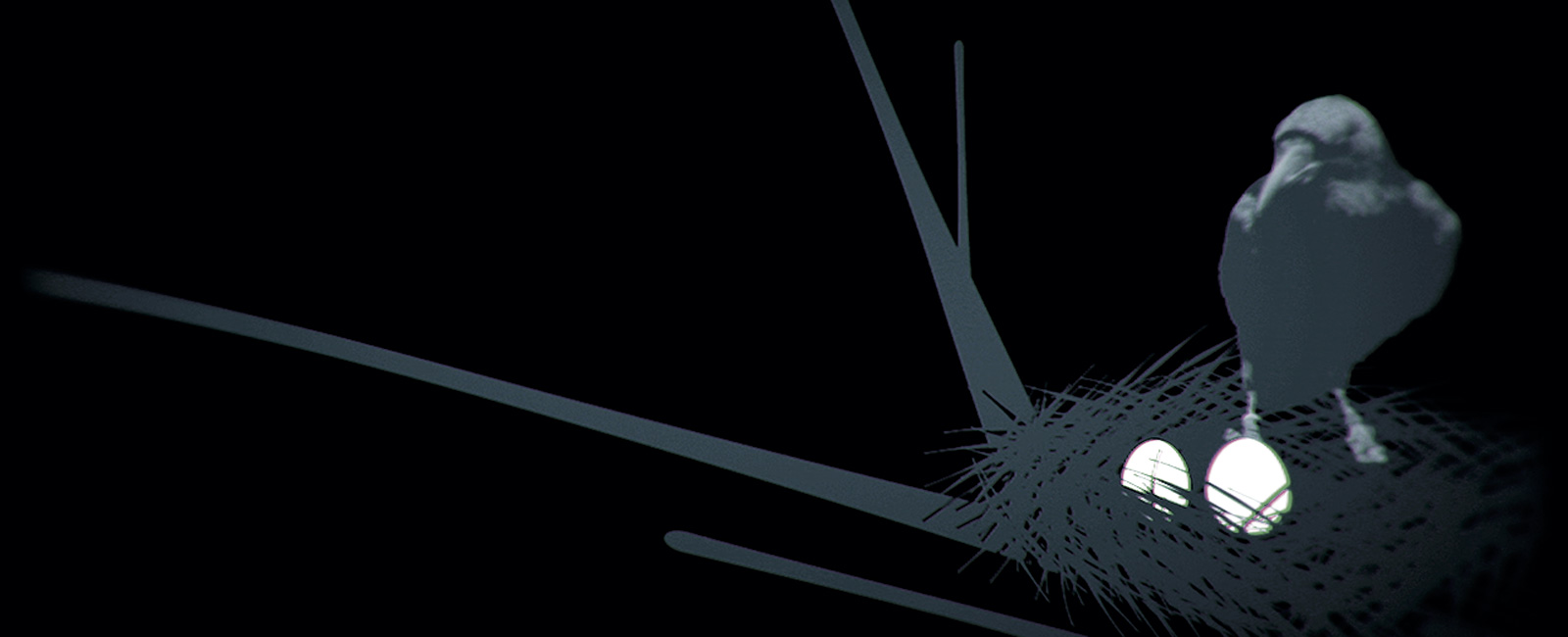Video artist María Ruido premieres her new work, ‘Mater Amatísima’, in the BBVA Foundation exhibition space Sala MULTIVERSO
The video will be on show to the public from 20 October to 19 November.
20 October, 2017
Starting tomorrow, the BBVA Foundation will screen the video artwork Mater Amatísima. Imaginaries and Discourses on Motherhood during Times of Change. Its author, María Ruido, describes the work as a reflection on how “our ability to construct the world and relate to each other through socially and personally significant and profound experiences is severely limited in today’s increasingly fragmented and individualistic system. Having offspring and building an approved model of family can provide compensatory structures in a social-political context that offers few opportunities to make a significant mark.”
The video can be viewed in the Sala MULTIVERSO, a dedicated space for video art exhibits inside the Marques de Salamanca Palace, Madrid headquarters of the BBVA Foundation, where it will be screened uninterruptedly every day between 10:00 and 21.00 (including public holidays) until the 19th of next month.
This is the fifth installment in the MULTIVERSO exhibition series launched by the BBVA Foundation on May 12 this year. Preceding it in the series were Expediente: Túnel de la Engaña by Txuspo Poyo; PIRI REIS. La continuación de un mito by Rosana Antolí; Sincronías 2016, by Marc Larré; and The Wolf Motives/Los motivos del lobo by Carles Congost. The Sala MULTIVERSO will next host El accidente de Vollard by Pedro Luis Cembranos; La España profunda by Isaías Griñolo; Global Windshield, The Musical by Momu & No Es; and Shelter by Lúa Coderch. All products of the second edition of the BBVA Foundation’s MULTIVERSO Grants for Video Art Creation.
María Ruido explains that her work “has appropriation and disassembly/reassembly as its principal methodology, because I see images as a useful means to think and rethink, recontextualize and bring into collision. They are, after all, the primary tools of the video essay.”
The Multiverso funding, the artist continues, “has allowed me to make this film in enviable conditions at a time when finding the money and the right material conditions for production is complicated in the extreme. The crisis has had a huge impact on cultural and artistic output, and we are working in far more precarious conditions than ten years ago. At the same time, these Multiverso Grants – as I think is abundantly clear from the selection made in their three editions – have become a form of reaffirmation for artists like me at the mid-stage of our careers, with a certain track record and reasoned expectations of further growth and professionalization. For me – and I think for many of my colleagues – they are a means of self assertion and also, in a sense, a gateway to broader recognition. I believe that all of us feel they are a big step forward in our careers.”
Laura Baigorri, exhibition curator and an associate professor specializing in art and new media in the Fine Arts School at the University of Barcelona, compares Mater Amatísima with “pieces of a jigsaw that refuse to fit,” in which Ruido “confronts the spectator with a discourse that interrogates notions of the family and motherhood from a critical, feminist perspective.”
“In this documentary essay,” she adds, “the author takes issue with the traditional maternal image through an examination of the recent court trial in the “Asunta case,” disassembling and recontextualizing it with other materials drawn from art – painting, photography and film. The video, which continues a line of thought present throughout her career – the use of women’s bodies as a primary site of social control – turns in this case to a more concrete objective: revealing the social and emotional pressure suffered by many woman caught in the dichotomy of loving their children yet hating the experience of being mothers.”
Sala MULTIVERSO: a dedicated video exhibition space in Madrid’s “Art Walk”
The MULTIVERSO Space within the BBVA Foundation’s Madrid headquarters is now an established stop along Madrid’s Paseo del Arte (“Art Walk”), adding to its landmark institutions a dedicated venue for the most innovative video art.
With the MULTIVERSO Exhibition, the grant scheme of the same name and the MULTIVERSO Space, the BBVA Foundation has expanded its focus to video art creation, with the dual aim of fostering the development of a language expressive of today’s culture, and encouraging public interest in this artistic discipline through the display of newly created works.
The nine projects featured in the MULTIVERSO Exhibition were independently appraised by an evaluation committee who made their selection based on the artist’s track record and the originality of the submitted project. The committee was formed by Juan Antonio Álvarez Reyes, Director of the Centro Andaluz de Arte Contemporáneo; Eugeni Bonet, artist and exhibition curator; Javier Díaz-Guardiola, coordinator of the Art, Architecture and Design sections of supplement ABC Cultural; Nuria Enguita, exhibition curator; Chus Martínez Pérez, head of the Art Institute of the Academy of Arts and Design, Basel; Mariano Navarro, critic for El Cultural; María Pallier, director of the arts program Metrópolis, TVE; Blanca de la Torre, exhibition curator and art historian; and Elena Vozmediano, art critic for El Cultural.
The awardee projects, in the opinion of Laura Baigorri, have materialized into “rich, thoughtful pieces of considerable aesthetic and conceptual complexity,” because the MULTIVERSO grants have given their authors “the time and resources to delve deep in their research, plan ahead, travel to the locations where they wanted to shoot, and employ the most sophisticated production techniques.”

